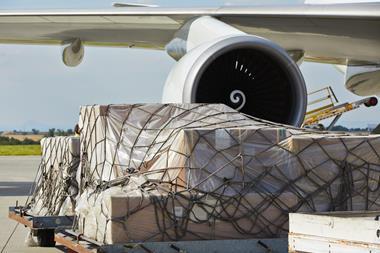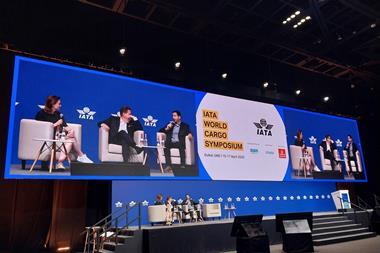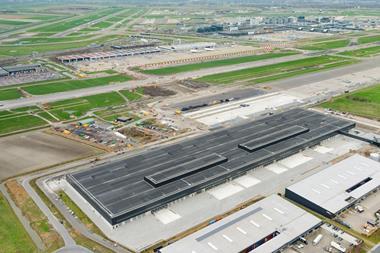The air cargo industry could save billions of dollars in costs if it automated transactions between various players in the supply chain, according to one speaker at the Air Cargo China event.
During a panel discussion on the future of air cargo, Lufthansa Cargo chief commercial officer Alexis von Hoenbroech said he believed around 70% of transactions could be automated using robotics or artificial intelligence.
He gave the example of a shipper emailing a group of forwarders asking for a price on a particular route, each of the forwarders then emailing all their airline partners for a quote and then reviewing the various prices before sending them back to the shipper who would then review the various offers from the forwarders before making a decision.
He said that there were existing systems that could review the emails, recognise whether any necessary information is missing, request that information and then automatically generate a quote.
He said: “In my opinion 70% of the quotes we give out today are available for such robotics and artificial intelligence and I think that if we could get that then we could save a huge amount of manual work and this could cut $1bn-2bn from the air cargo supply chain just by optimising this type of transaction, so there is huge potential.”
However, he said this did not mean that all humans would be replaced by automated systems.
“I think we have many simple transactions but others can become very complex when it comes to things like dangerous goods and these type of transactions will stay manual over the long term.
“I am also convinced that even in 20 or 30 years when robotics and artificial intelligence are hopefully implemented in our industry, we will still have humans that take care of all the complex stuff. This is a people business and it will stay a people business.”
Von Hoenbroech, who later this year will leave his role at Lufthansa Cargo to take up the chief executive role at Austrian Airlines, also chided the industry for its “embarrassing” and “very slow” take up of technological change, highlighting the progress of electronic air waybills (e-AWB), although he said there were plenty of good ideas as well.
He urged the industry to increase its use of e-AWBs as a first step to further digitisation of air cargo that would yield real benefits and efficiencies for the industry.
Turkish Cargo chief cargo officer Turhan Özen said that the slow adoption of technological change in the industry was partly down to its fragmented nature, with forwarders, handlers, airports, customs, ground handlers, carriers, shippers, trucking companies all involved in a single transport at both ends of the supply chain.
He would like to see the various parties digitally connect to each other to create a virtual integration of supply chain partners through the Internet of Things and other digital services.
Both Özen and von Hoenbroech agreed that the development of digital portals did not mean the end of freight forwarders because of the added value they bring to the supply chain and their ability to consolidate cargo, although new digital forwarders would take some market share from legacy companies, they said.
ECS chief executive Adrien Thominet added that the younger generation joining the industry could help drive change.
“When we show the ‘i-generation’, who were born in the 2000s, our customer service and tell them they will receive and email from a forwarder, or ten forwarders, for the same quote, they question why it is not automated.
"They are surprised that they will need to answer the email. We look like dinosaurs in front of them. They are pushing us to re-think and change our mindset."
Read more air cargo technology news










